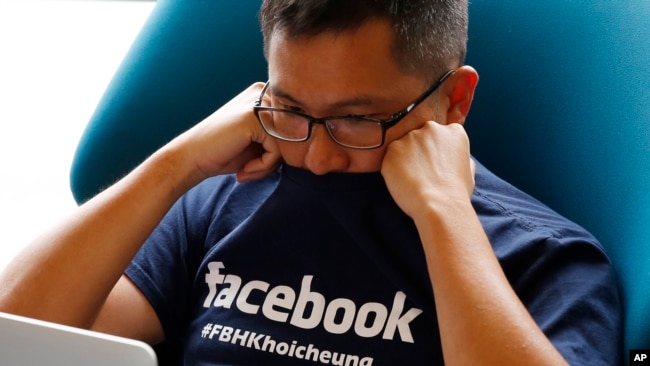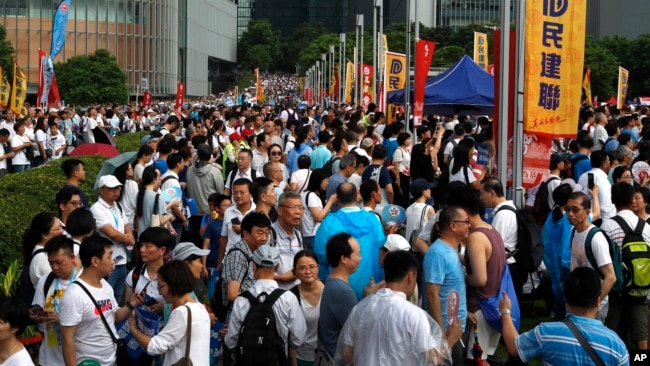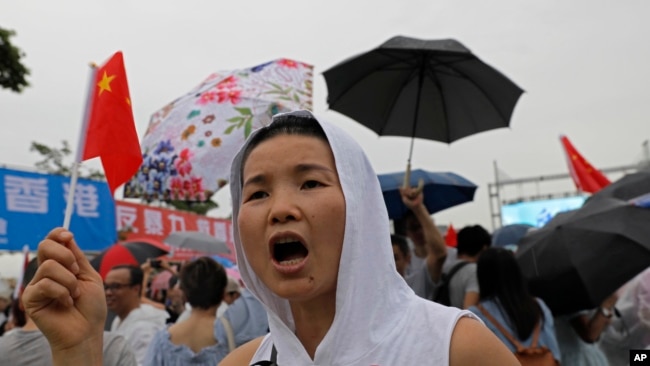
Facebook and Twitter have accused China of using social media to spread disinformation about Hong Kong’s protest movement. This week, the U.S.-based social media services removed accounts they said were linked to a Chinese-backed campaign to target protesters in Hong Kong.
Source: Facebook, Twitter Accuse China of Fueling Hong Kong Disinformation
Facebook and Twitter have accused China of using social media to spread disinformation about Hong Kong’s protest movement.
This week, the U.S.-based social media services removed accounts they say were linked to a campaign targeting the Hong Kong pro-democracy movement.
The Chinese government blocks both Twitter and Facebook on the mainland. The sites are freely available in Hong Kong.
Twitter said in a statement it had taken down more than 900 accounts for purposefully attempting to create “political discord” in Hong Kong. The company said it had uncovered evidence the accounts were part of “a coordinated state-backed operation.”
The accounts appeared aimed at “undermining the legitimacy and political positions of the protest movement on the ground,” Twitter added. All the accounts had been “suspended for a range of violations” of Twitter policies, the company said.
In a statement, Facebook said it began investigating similar activity on its service after Twitter informed the company about the issue. It said it had removed at least seven pages, three groups and five accounts linked to “coordinated inauthentic behavior” on the service.
Facebook said the individuals behind the campaign used a number of methods to spread their message, including using false accounts. Facebook’s system is designed to look for false accounts. The company said its system found and blocked some of the accounts linked to the campaign.
Facebook said that although people behind the activity attempted to hide their identities, “our investigation found links to individuals associated with the Chinese government.”
Some of the accounts were pages designed to look like real news organizations. But they were instead used to spread disinformation, Facebook said. It also said the decision to take down the pages, groups and accounts was based on the behavior of the people behind the activity, and not the information that was published.
Both Twitter and Facebook showed examples of some material posted to the accounts. Several pages described Hong Kong protesters as violent aggressors. One Facebook page compared the demonstrators to Islamic State terrorists. Several other posts described Hong Kong protesters as “cockroaches.”
Twitter also announced a new policy of banning advertisements from “state-controlled media” companies. That decision came after Twitter was criticized for accepting ads from major Chinese state-run news agencies. Some ads described Hong Kong protesters as being anti-China and trying to fuel violence.
Twitter said state-controlled media would still be permitted to use Twitter accounts to publish non-ad information as long as the companies do not violate any Twitter rules.
A spokesperson for Facebook told The Associated Press the company is currently considering its policies related to state-owned media before deciding whether changes are necessary.
When asked about the actions of Twitter and Facebook, a Chinese official defended the right of Chinese people and media to make their voices heard about the Hong Kong protests.
“What is happening in Hong Kong, and what the truth is, people will naturally have their own judgment,” foreign ministry spokesman Geng Shuang told reporters. But he added, “Why is it that China’s official media’s presentation is surely negative or wrong?”
Geng said it is important for Chinese media to use foreign social media services to communicate to the world. This can help the media introduce Chinese policies and “tell China’s story,” he added.
Leaders of the Hong Kong protest movement have widely used social media to get their message out to the world. They have also used such services to coordinate activities in Hong Kong.
The actions of both Facebook and Twitter are seen as an effort to answer past criticism. In recent years, critics have said the social media companies do not do enough to prevent state-run interference in elections around the world.
I’m Bryan Lynn.
Bryan Lynn wrote this story for VOA Learning English, based on reports from The Associated Press, Reuters, Agence France-Presse, VOA News, Facebook and Twitter. Ashley Thompson was the editor.






